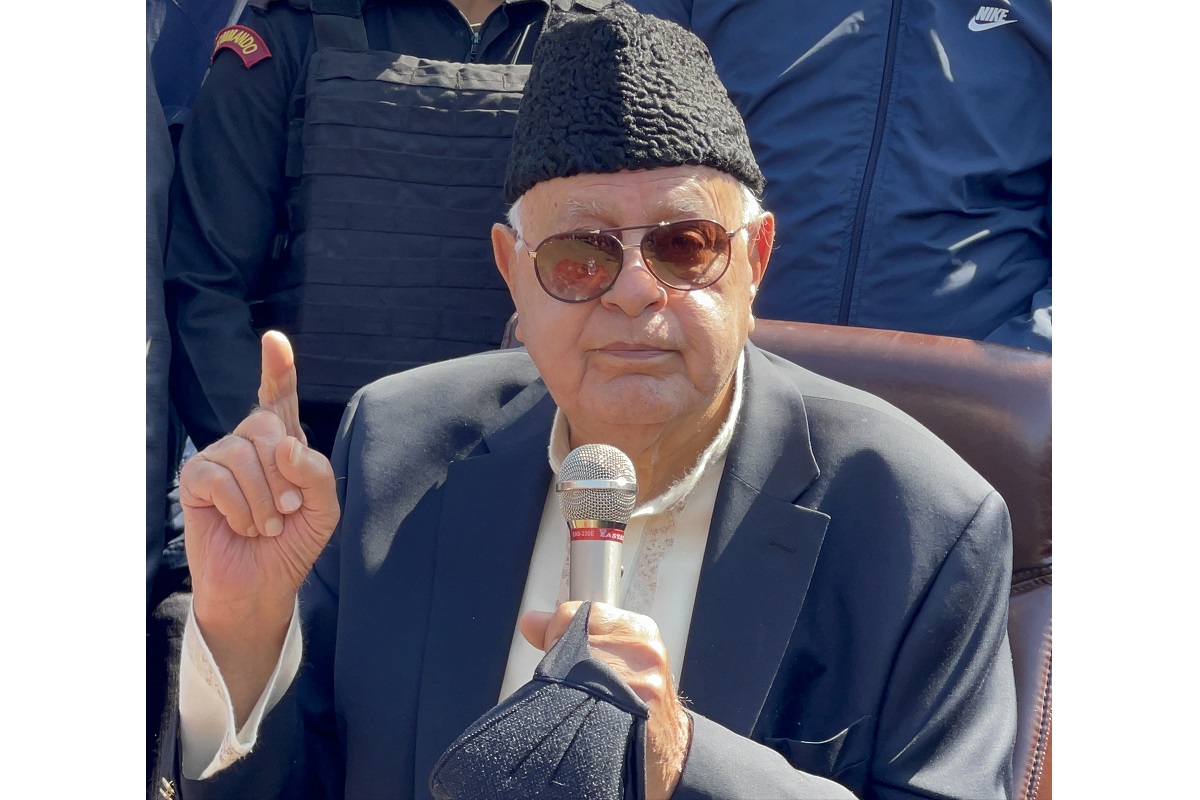National Conference President and MP from Srinagar Dr. Farooq Abdullah on Saturday stressed the need to identify internal and external enemies of Jammu and Kashmir, saying it is the unity of the people of J&K that will not let the nefarious plans of such forces work.
This he said while addressing a public gathering at Harinara, Singhpora, Pattan.
Advertisement
He said that the incumbent regime’s normalcy, peace, and development narrative is hardly visible on the ground. “People are yearning for their democratic, constitutional, and human rights, which have incessantly been abridged since 2019,” he said.
Cautioning people against the divisive forces contriving to divide people of JK into religious, regional, and sectarian lines, Dr. Farooq said that the people of J&K are confronting a two-front battle, one with those peddling divisive agenda nationally and the other one locally.
Referring to his father Sheikh Abdullah, Dr. Farooq said “Sher-e-Kashmir always maintained that a day will come when there will be a leader in every street and corner of Kashmir. The prevailing circumstances have attested to his forewarning. Today we see mushrooming of political parties and leaders in every nook and corner of Kashmir. The risky political vacuum created by the decisions of August 2019 cannot be filled by such airdropped leaders. It is a genuine popular representative government that will meet the challenge of instilling faith in the hearts of people,” he said.
“In spite of their failures to make inroads into Kashmir even with the help of their A, B teams, the communal forces are now up to creating leaders in every Mohalla, street, and village. It is a warning sign for us. The people of Kashmir must remain cautious of such forces who want to divide our society into regional, religious, communal, and sectarian lines,” he said.











